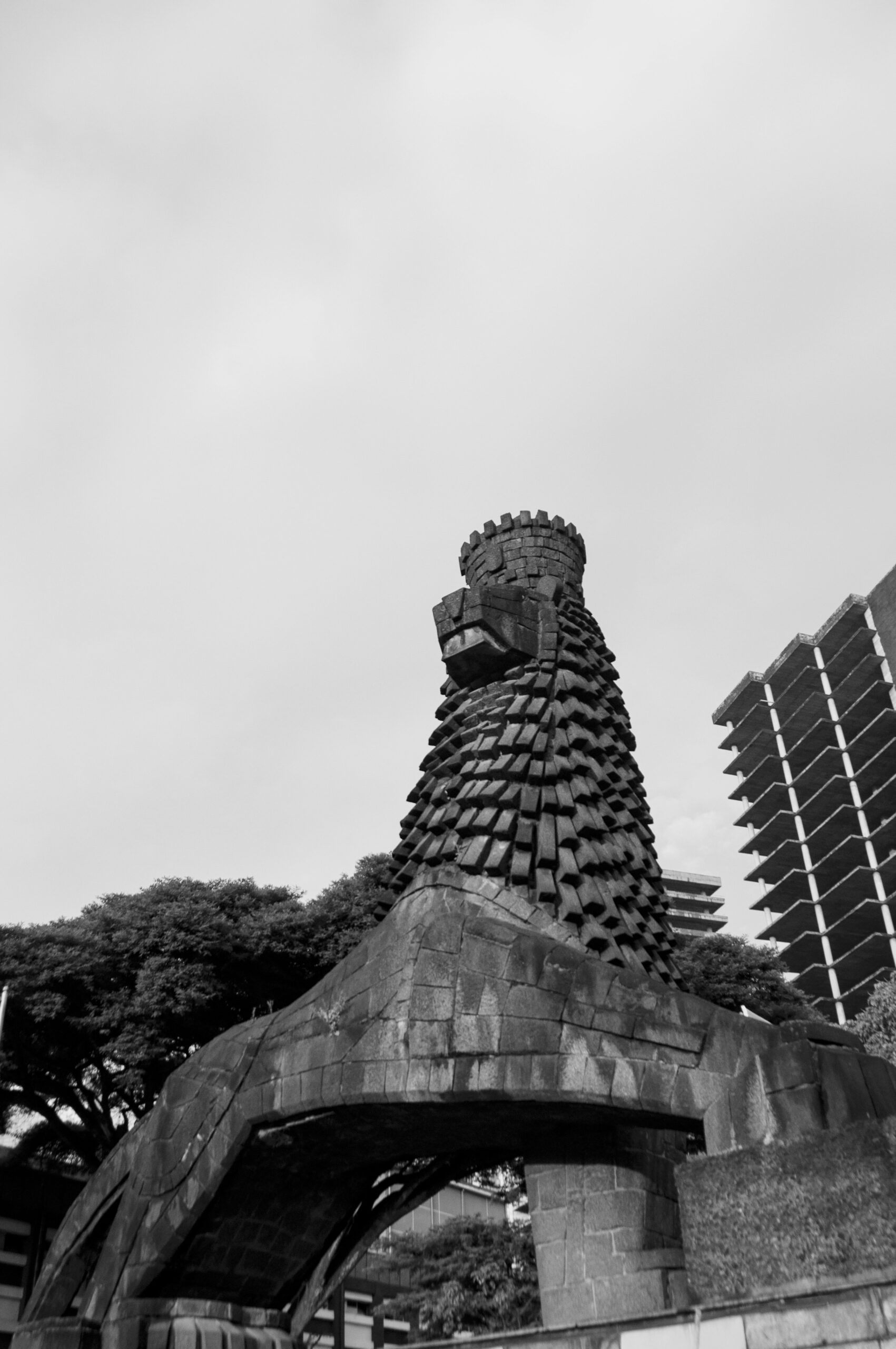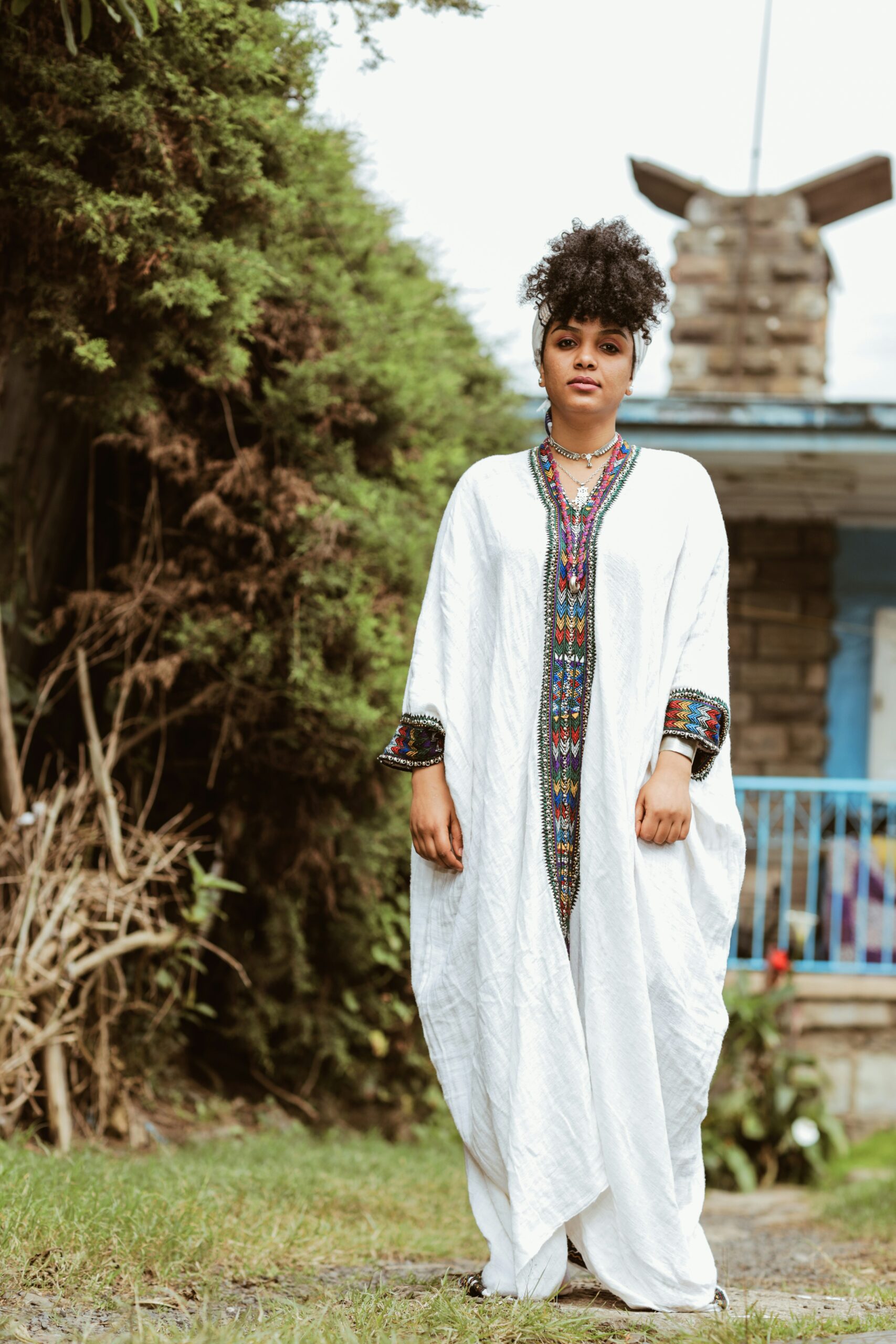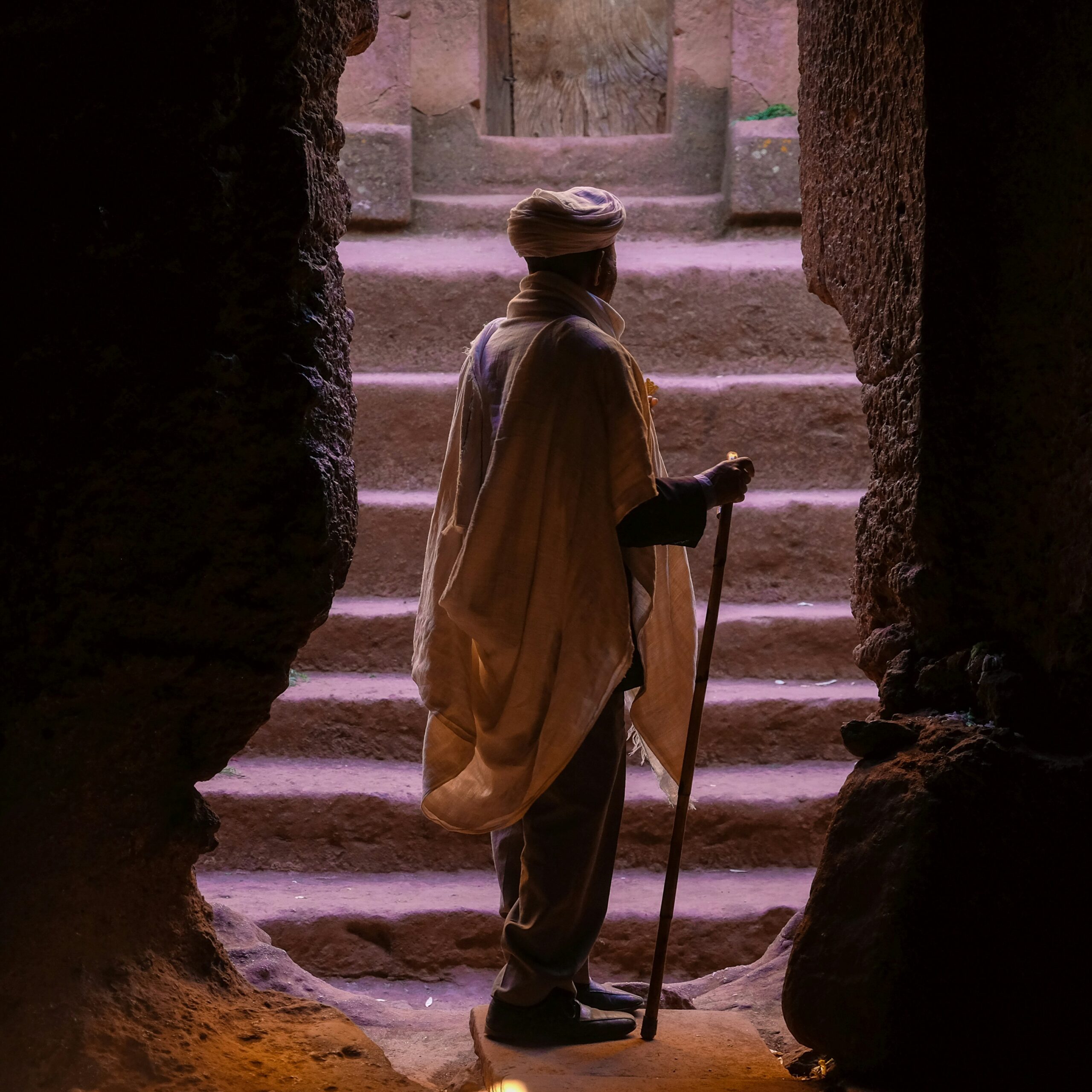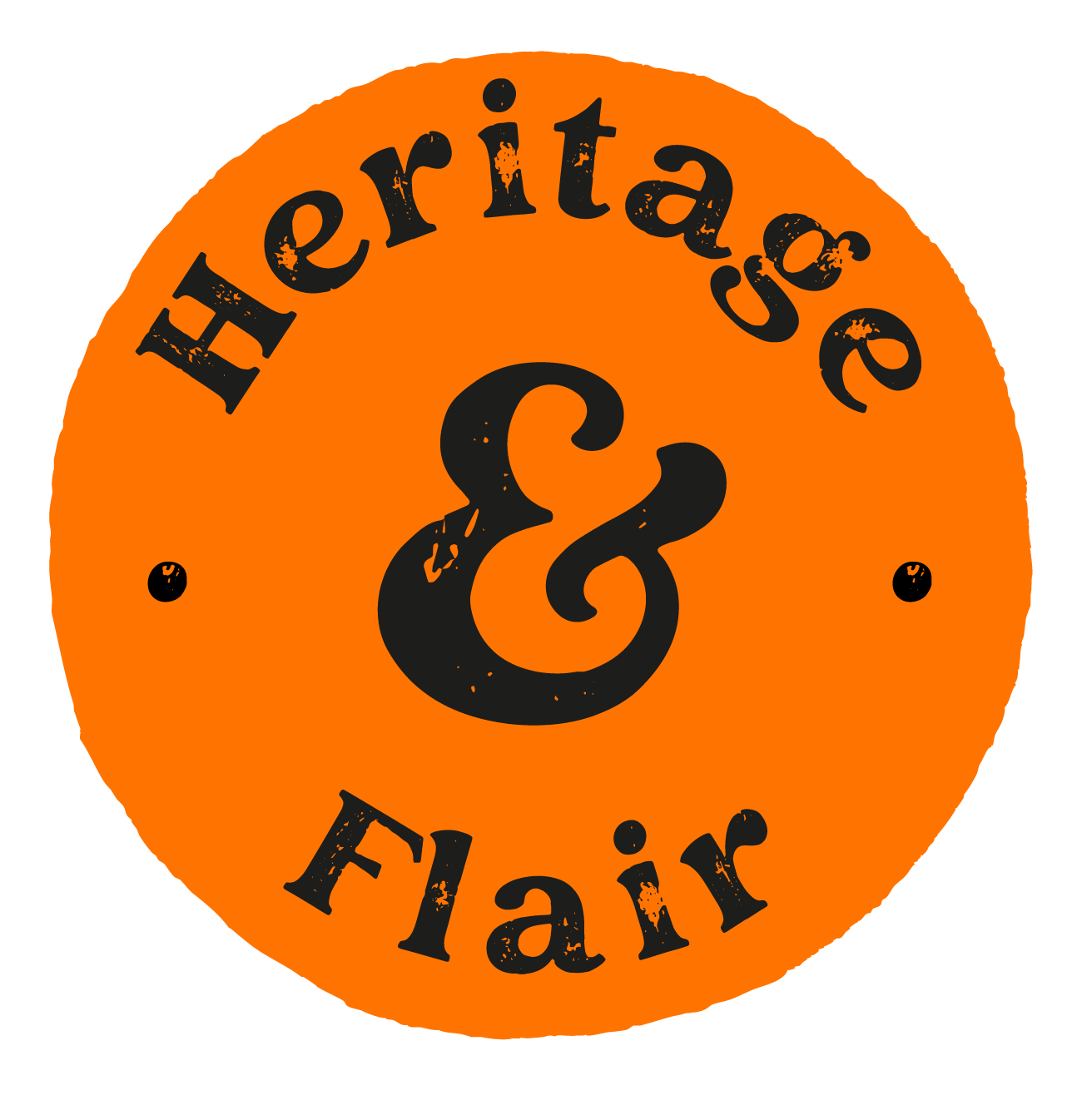
Photo by Myeyeslamp
Ethiopia
Ethiopia is located in the Horn of Africa and is bordered by Eritrea to the north, Djibouti and Somalia to the east, Kenya to the south, and Sudan and South Sudan to the west.
It is a landlocked country known for its diverse landscapes, which include mountains, highlands, deserts, and fertile valleys. The Great Rift Valley, which runs through the country, is a significant geological feature.
The capital and largest city, Addis Ababa is the political, economic, and cultural centre of Ethiopia. It is also the headquarters of the African Union and hosts numerous international organisations.
Ethiopia has a population of over 115 million people, making it the second-most populous country in Africa. The population is ethnically diverse, with major groups including the Oromo, Amhara and Tigray.
Amharic is the official language of Ethiopia, used in government and education. Other widely spoken languages include Oromo, Tigrinya and Sidamo. English is also commonly used, especially in higher education and business.
Ethiopia is one of the oldest countries in the world, with a rich history that dates back thousands of years. It is often regarded as the cradle of humanity, with the discovery of ancient hominid fossils such as “Lucy” (Australopithecus afarensis) in the Afar region.
Ethiopia’s ancient civilisation, the Kingdom of Aksum, was a major trading empire known for its obelisks, coins, and the adoption of Christianity in the 4th century.
Ethiopia has a long history of independence and was never colonised, except for a brief occupation by Italy from 1936 to 1941 during World War II. It is the only African country to have successfully resisted European colonisation, symbolising African sovereignty and resilience.
Ethiopia is a federal parliamentary republic. The President is the head of state, while the Prime Minister is the head of government. The country is divided into regional states based on ethnicity and language, each with its own government.
Ethiopia has one of the fastest-growing economies in Africa. Agriculture remains the backbone of the economy, employing a large portion of the population. Ethiopia is also the largest producer of coffee in Africa, and coffee is a major export product. The government has focused on infrastructure development and industrialisation to boost economic growth.
Ethiopia has a rich cultural heritage that reflects its long history and diverse population. Traditional music, dance, and art are integral parts of Ethiopian culture. Each ethnic group has its own unique cultural expressions, from the polyphonic singing of the Dorze people to the intricate beadwork of the Afar.
Hidden Insights: Uncovering Ethiopia
1. Rock-Hewn Churches of Lalibela: The town of Lalibela is famous for its 11 monolithic churches carved out of solid rock in the 12th century. These churches are interconnected by a series of tunnels and trenches and are still used for worship today.
2. Coffee Ceremony: Ethiopia is the birthplace of coffee, and the traditional Ethiopian coffee ceremony is a significant cultural practice. The ceremony involves the roasting, grinding, and brewing of coffee beans and is a time-honoured ritual symbolising hospitality and friendship.
3. Dallol Depression: Located in the Danakil Desert, the Dallol Depression is one of the hottest and lowest places on Earth. It is known for its otherworldly landscapes, including colourful hydrothermal fields, salt flats, and volcanic formations.
4. Ethiopian New Year & Unique Calendar: Ethiopia celebrates its New Year, Enkutatash, on September 11th (or 12th in a leap year). The celebration marks the end of the rainy season and is a time for feasting, dancing, and exchanging gifts. Ethiopia also uses its own calendar, which is approximately seven to eight years behind the Gregorian calendar. The Ethiopian calendar has 13 months, with 12 months of 30 days and an additional month of five or six days. Ethiopia also uses a 12-hour clock system, with the day starting at 6 AM.

Photo by Eyoel Kahssay

Photo by Stephane Hermellin
Capital City: Addis Ababa
Population: 118,550,298
Nationality: Ethiopian(s)
Location: Eastern Africa, west of Somalia
Languages: Oromo (official working language of Oromia Regional State) 33.8%, Amharic (official national language) 29.3%, Somali (official working language of Somali Regional State) 6.2%, Tigrigna (Tigrinya) (official working language of Tigray Regional State) 5.9%, Sidamo 4%, Wolaytta 2.2%, Gurage 2%, Afar (official working language of Afar Regional State) 1.7%, Hadiyya 1.7%, Gamo 1.5%, Gedeo 1.3%, Opuuo 1.2%, Kafa 1.1%, other 8.1%, English
Religion: Ethiopian Orthodox 43.8%, Muslim 31.3%, Protestant 22.8%, Catholic 0.7%, traditional 0.6%, other 0.8% (2016 est.)
Area Total: 1,104,300 sq km
Ethiopia Embassy/High Commission in UK
Address: 17 Princes Gate, London SW7 1PZ
Website: www.ethioembassy.org.uk
Correcting The Map: The True Size Of Africa
The Mercator Projection downplays the size of Global South continents as it makes the Global North look larger
Heritage: What shapes us?
When heritage is mentioned, our minds often leap to the spectacular and the visible: the grandeur of world heritage sites, the majesty of traditional attire, the vibrant swirl of dances and festivals, or the melodies of mother tongues. These are the showpieces of...
HER-itage: Africa’s Phenomenal Queens And Leaders
Honouring and celebrating the incredible contributions of women throughout African history. These remarkable women have shaped nations, led revolutions, and stood against oppression with unwavering resilience. These queens, warriors, and visionaries broke barriers,...
